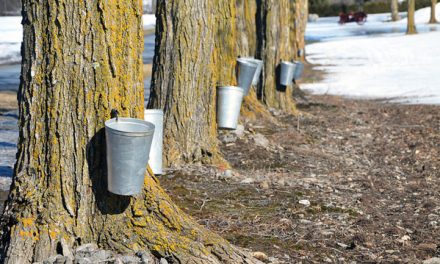By Terry Tinkess
AgriNews Staff Writer
Bill C-234, a bill to exempt fuel for grain drying from the price on carbon has managed to clear the Senate and now returns to the House of Commons with two amendments.
The Bill, which generated complaints of bullying, partisan behaviour from “independent” members, and questions of privilege being sent to the ethics committee, was amended a second time when the senators voted to reduce the bill’s sunset clause to three years from eight, which would align it with the deadline on the Liberal government’s heating oil carbon price exemption, according to Senator Yuen Pau Woo, who tabled the amendment.
Previously, senators amended the bill to remove barn and greenhouse heating from proposed carbon price exemptions in the bill.
“In my view, Bill C-234 is not good public policy,” said Woo. “This is why I oppose it as much as I oppose the Liberal government’s exemption for home heating oil. Unfortunately, we have no ability to debate the home heating oil exemption,” he added.
Senator David Wells, the sponsor of the bill in the Senate, opposed the amendment. He said that while in committee debates in the House of Commons, MPs had agreed to reduce the sunset clause from 10 years to eight.
“There was no debate at committee on that in the other place, and they all agreed that eight years was fair,” Wells said. “Now we’re hearing from Senator Woo that not 10 years, not eight years, but three years is fair.”
Farm groups and government officials who support the bill have expressed concerns that, since the bill must now be returned to the House of Commons for further debate, it will be delayed until it dies on the order paper. One of these groups, the National Farmers Union (NFU) released a statement calling on political parties to prioritize and pass the bill.
Former NFU vice-president Glenn Wright said in his statement that while the NFU supports a price on carbon in general, farmers don’t have viable alternative methods for drying grain.
“Because farmers are so climate-dependent—so vulnerable—it is in farmers’ interests that Canada and all nations reduce emissions as quickly as possible. Canada’s pollution-pricing system is a crucial part of that effort,” said Wright. “In this one case, however, because there are no alternative grain drying options for farmers, a temporary exemption is the right policy.”
Wright added that an amendment to remove an exemption on fuels for building heating creates a “pressing need” for financing and incentives for farmers to adopt more efficient heating options.
“The NFU recognizes that farmers can improve building efficiency and switch heating sources to clean technologies like heat pumps, but these renovations are capital intensive, and farmers will need extensive financial support to decarbonize the heating of barns and greenhouses,” he said.
Following third reading in the Senate, the Bill returned to the House of Commons, where the Conservative opposition made a concerted effort through a nearly 30-hour session which included 120 “opposed votes” on various line items from the supplementary estimates and more than a dozen subsequent government spending items in an attempt to force the debate of the Bill prior to the Christmas break. They were ultimately unsuccessful, and the House of Commons ultimately began their Christmas recess late on Fri., Dec. 15.












